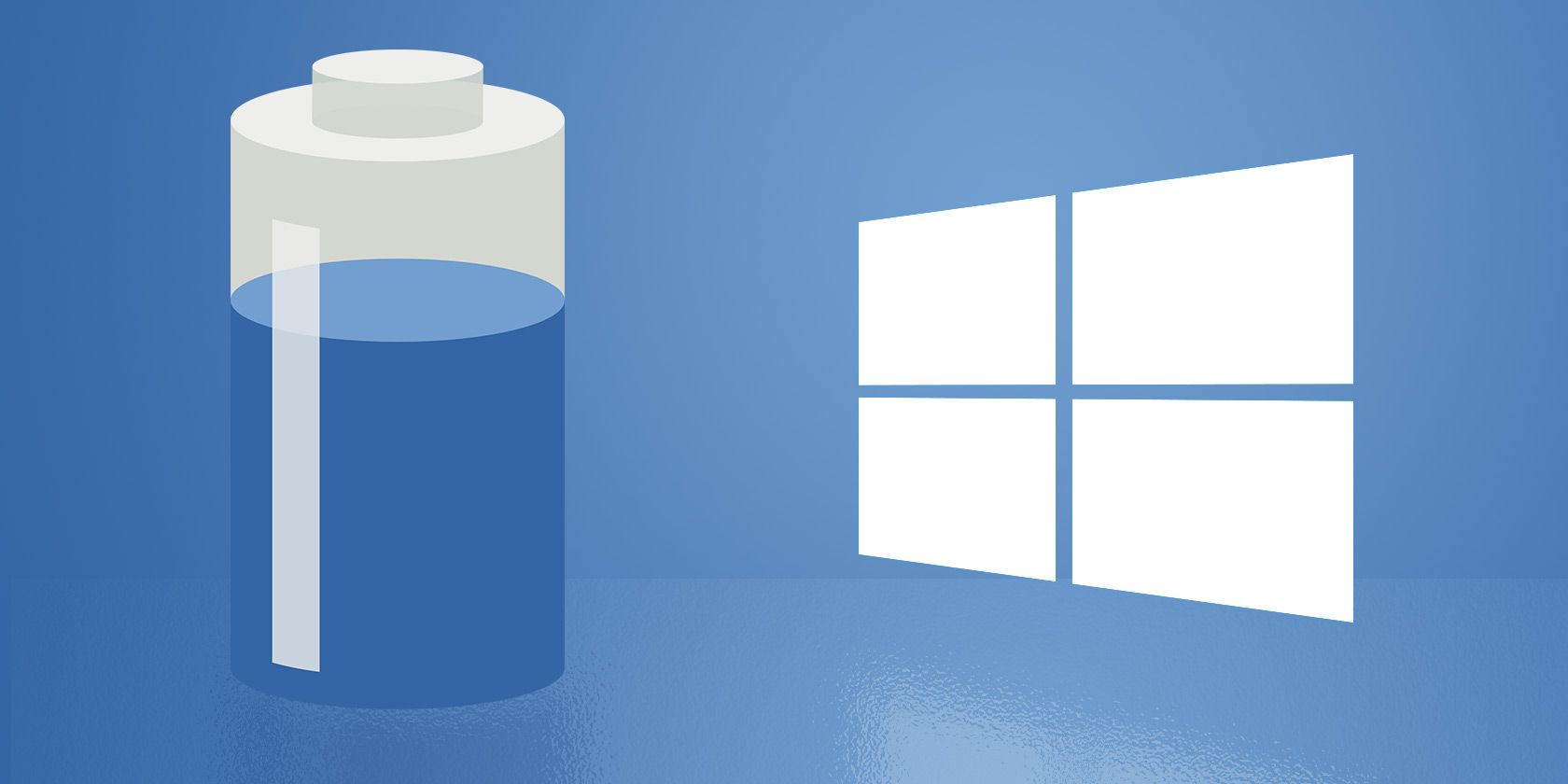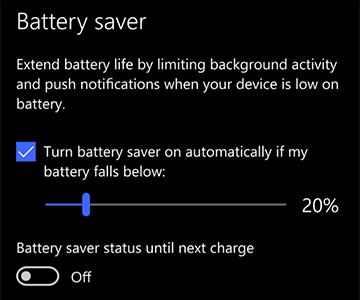A battery isn't just a battery -- it has its own nature and characteristics. That's why managing your battery's life depends on the type of battery it is. For instance, the two more popular kinds rechargeable batteries these days are Lithium-Ion and Lithium-Polymer. The older Nickel-Cadmium are obsolete.
One thing is constant: a battery goes through a certain number of discharge cycles before you can give up on it. You can remove a battery to "prolong" its life when you aren't using a laptop for a long time. But for everyday use, it's not a practical idea.
The better option is to become a master of battery management. Here are two resources that will help you tackle your battery woes on Apple devices and Windows machines.
Battery Saving Tips From Microsoft
Windows 10 has a new Battery Saver feature that automatically manages the power when it falls below 20% (default). Microsoft Support has a detailed page that guides you through the feature with more tips.
The Battery Saver squeezes out more time by limiting background activities and reducing the brightness of the screen among other things. You can control these settings and maximize the use of your computer's battery.
Remember, Windows 10 has many settings to save the machine's battery life. Work through all of them and tell us what works for you in the comments.
Battery Saving Tips From Apple
Apple has a more comprehensive support page that covers all the battery facts for its range of devices. For instance, pay attention to the temperature and moisture of the room where you work from. It's one of the more obvious steps you can miss when you want to prolong the life of your Apple device.
Of course, it may not be that easy to control in the real world. But you can stay aware of the battery's status with the help of a little icon in the menu bar on top. Check the Battery Status with a click on the battery icon.
Here, you can see basic information about the battery’s, and a list of apps that are chomping on a large portion of the power supply. You will usually find Chrome here if you have multiple tabs open.
Go to the Activity Monitor for a more specific idea of the apps eating a power lunch. You can access it from Applications > Utilities > double-click on Activity Monitor.
Now, click the CPU, Memory, Energy, Disk and Network tabs to see which programs are consuming the most resources in the respective areas. Quit the greedy ones.
Little things like Spotlight indexing may make your computer run hot and affect the battery. So, work through all the battery saving tips for your MacBook and manage them before problems crop up.
Keep Your Devices Updated
Companies are designing better ways to prolong battery use. It is the Holy Grail of today's electronics. The support pages supplied by Microsoft and Apple are good reference points to grab the knowledge before you unbox your device.
Has your battery died before its due date? Do recommend a few practical battery saving tips that work for you.



